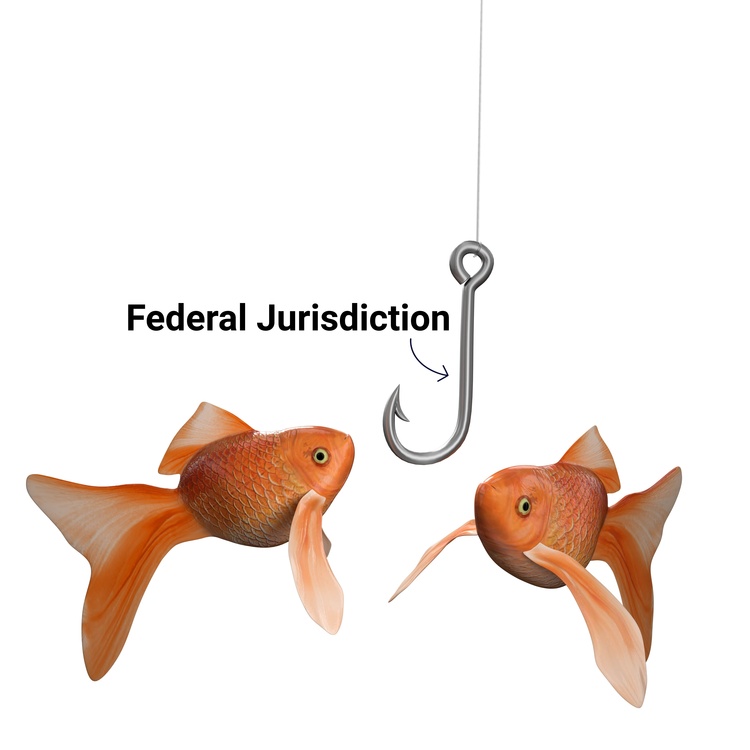If the primary function of the U.S. Constitution is to delegate limited and circumscribed powers to the federal government to protect the individual rights of Americans, why should the courts Until now Do we assume that government officials are acting in good faith? Especially when they frequently seek to avoid responsibility for violations of individual rights. Evidence of such “good faith” is lacking, especially for owners seeking just compensation when the government takes away their private property.
Consider the very cynical gamesmanship of . de Villiers vs. TexasNo one disputes that the state of Texas built highway barriers to direct hurricane flooding onto the property of Richard de Villiers and 120 others. This was no small problem. Floods have displaced people, damaged businesses, destroyed crops, killed livestock, and destroyed family heirlooms.
Because the Constitution requires the government to pay for land it “takes” (in this case, the acquisition was Texas' use of De Villiers et al.'s land for rainwater storage), property owners , filed suit against the State of Texas in its own state court seeking compensation. Obtained under both the U.S. and Texas constitutions.
Rather than get directly involved in the case, state prosecutors pursued a novel strategy of trying to wipe out the case altogether. Because Mr. de Villiers filed his lawsuit under both the federal and state constitutions, the state of Texas exercised its right to transfer the case to federal court.
But when the case went to federal court, the state of Texas argued that Mr. de Villiers could not sue directly under the federal constitution's Takes Clause and that federal civil rights law does not allow for lawsuits against the state. They also argued that federal civil rights laws could not be invoked. The Fifth Circuit agreed and dismissed De Villiers' lawsuit, leaving him with no recourse to recover compensation from the state of Texas.
The Supreme Court took up the case to resolve a long-standing question. In other words, if the state takes property but does not pay compensation, does the owner need permission from Congress to sue? But Texas didn't want to defend dirty tactics that rob property owners of their wealth. Any During oral arguments in court, he changed his tune and said he had no problem proceeding in state court, which the property owners had originally chosen.
Because of this statement, the Supreme Court's decision did not resolve the question of whether property owners could bring claims directly under the Constitution without invoking statutes that actually specifically authorize litigation. However, the court clearly rejected Texas' gamesmanship of exclusion and dismissal, although it left major problems for the future.
What a waste! Texas did everything it could to avoid the lawsuit, but only when pressed during Supreme Court oral arguments did the state's attorney say, “No offense, no harm.” I ignored the position.
But by condoning this change in direction and interpreting it as a “good faith” effort to ensure resolution of cases by state courts, courts are encouraging government lawyers to commit the worst kind of legal fraud.
Texas transferred De Villiers' case to federal court in June 2020. 4 years later, Mr. de Villiers will finally be allowed to file a lawsuit. This delay is negligible for the government's endless financial resources. For real people whose assets have been taken away, delays are costly, both financially and emotionally.
Similarly, the government has made important strategic concessions in the following areas: Sheetz v. El Dorado CountyI decided a few days ago de Villiers.in sheetsthe court brought a case to determine whether a legally imposed fee attached to a building permit is subject to the same constitutional review as an administratively imposed fee attached to a building permit.
The county strongly opposed and argued against the legally imposed fees. do not have It remains subject to such review until it faces the Supreme Court. Then, seeing that the Constitution could not support such a distinction, the county conceded the case at oral argument, after which the court said the parties had reached a “fundamental agreement.”
George Sheets filed a lawsuit against the county in 2017. 7 years laterhe can pursue the legitimacy of his claims.
to both sheets and de Villiers, government officials and their lawyers are committed to exempting government actions from judicial review and are clearly nervous about defending those actions on the merits. After years of unnecessary delays, property owners have sheets and de Villiers They will now exercise their long-awaited opportunity to seek vindication of their constitutional rights.
It is easy to understand that lawyers who represent governments, officials, and bureaucrats feel the impatience that comes with representing their clients so zealously.But just as prosecutors have a duty to pursue justice, not just convictions, so too does the Supreme Court. Niz Chavez v. Garland (2021) reminded other government lawyers, and government officials themselves, to “cut corners” with the public when litigating cases that determine the scope of government power. It is unbecoming of our government and its legal advisers to toy with people's constitutional rights.


